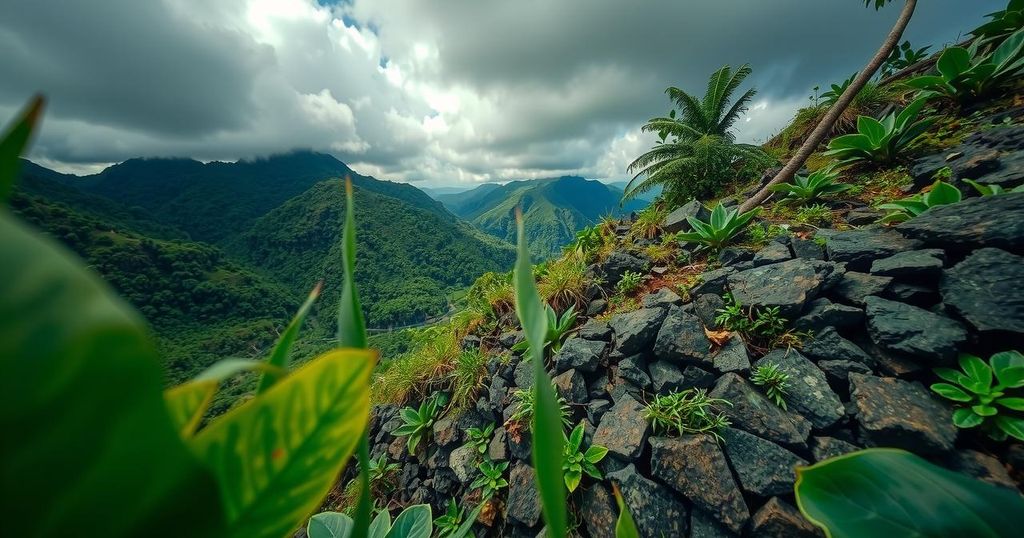Papua New Guinea will participate in the International Court of Justice for the first time to address climate change, seeking to clarify state obligations and advocate for compensation and climate finance. The country’s delegation aims to represent the challenges faced by Pacific Island nations regarding climate impacts, underscoring the necessity for international legal clarity and support.
Papua New Guinea (PNG) is set to make a historic appearance at the International Court of Justice (ICJ) to address the pressing issue of climate change. Justice and Attorney-General Minister, Pila Niningi, announced that PNG intends to present an oral statement regarding the legal obligations of states toward climate change, following a request from the United Nations General Assembly (UNGA) for an advisory opinion on the matter. This initiative aligns with PNG’s longstanding commitment to safeguarding environmental heritage amid an ongoing struggle against climate change impacts. Minister Niningi revealed that a delegation led by his ministry, including Justice and Attorney-General secretary Dr. Eric Kwa, acting Solicitor General E’ava Geik, and Public Solicitor Leslie Mamu, alongside representatives from the Department of Climate Change and Development Authority, will travel to the Netherlands for a two-week participation in the ICJ proceedings beginning on December 2. The decision to participate was taken during the 79th UNGA held in Fiji, where justice ministers and attorneys general from various Pacific and Caribbean nations convened to discuss climate-related challenges. Niningi emphasized that PNG’s involvement in the ICJ process will highlight the predicaments faced by Pacific Island nations, particularly the threats of rising sea levels and changing weather patterns. He articulated, “The ICJ’s advisory opinion will help clarify the legal responsibilities of states in combating climate change, offering guidance on their obligations under international law, including human rights and environmental treaties.” Prime Minister James Marape, speaking at the UNGA, underscored the critical condition of PNG’s extensive rainforests, significant biodiversity, and indigenous cultures, indicating they stand at a pivotal juncture of potential preservation or irreversible loss. He stressed the necessity for global cooperation in maintaining the Earth’s remaining tropical forests, with PNG playing a crucial role as a vital component of the world’s ecological balance. Furthermore, Marape called for equitable compensation and improved access to climate financing for forest nations like PNG to facilitate sustainable resource management while tackling global climate challenges.
The subject of climate change has gained increasing attention in international forums, given its severe impact on vulnerable nations, particularly small island developing states like Papua New Guinea. Rising sea levels, changing weather patterns, loss of biodiversity, and threats to indigenous cultures are among the dire consequences of climate change faced by these nations. The International Court of Justice plays a critical role in adjudicating issues related to international law, and its advisory opinions can help determine states’ obligations concerning climate action and human rights. As such, PNG’s participation in the ICJ marks a significant step in advocating for climate justice and seeking compensation and support from developed nations, highlighting the plight of nations hardest hit by climate change.
Papua New Guinea’s engagement with the International Court of Justice exemplifies a determined effort to confront the challenges posed by climate change, particularly for vulnerable island nations. By seeking an advisory opinion from the ICJ, PNG aims to clarify the legal responsibilities of states in addressing climate issues, potentially leading to greater accountability and support for affected nations. The importance of global partnerships and fair access to climate financing is crucial for preserving vital ecosystems and safeguarding the rights of indigenous peoples in the face of a changing climate.
Original Source: www.thenational.com.pg






